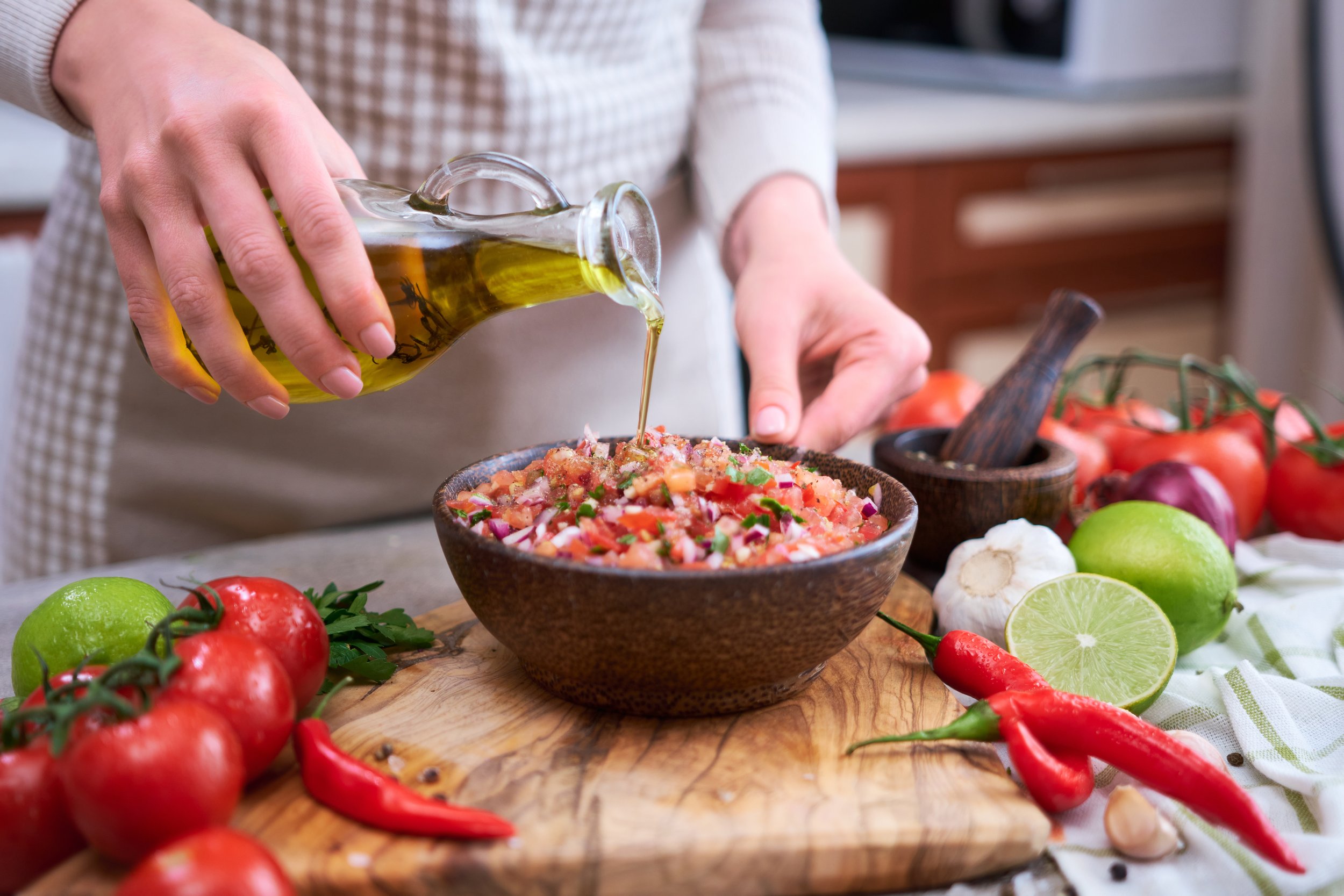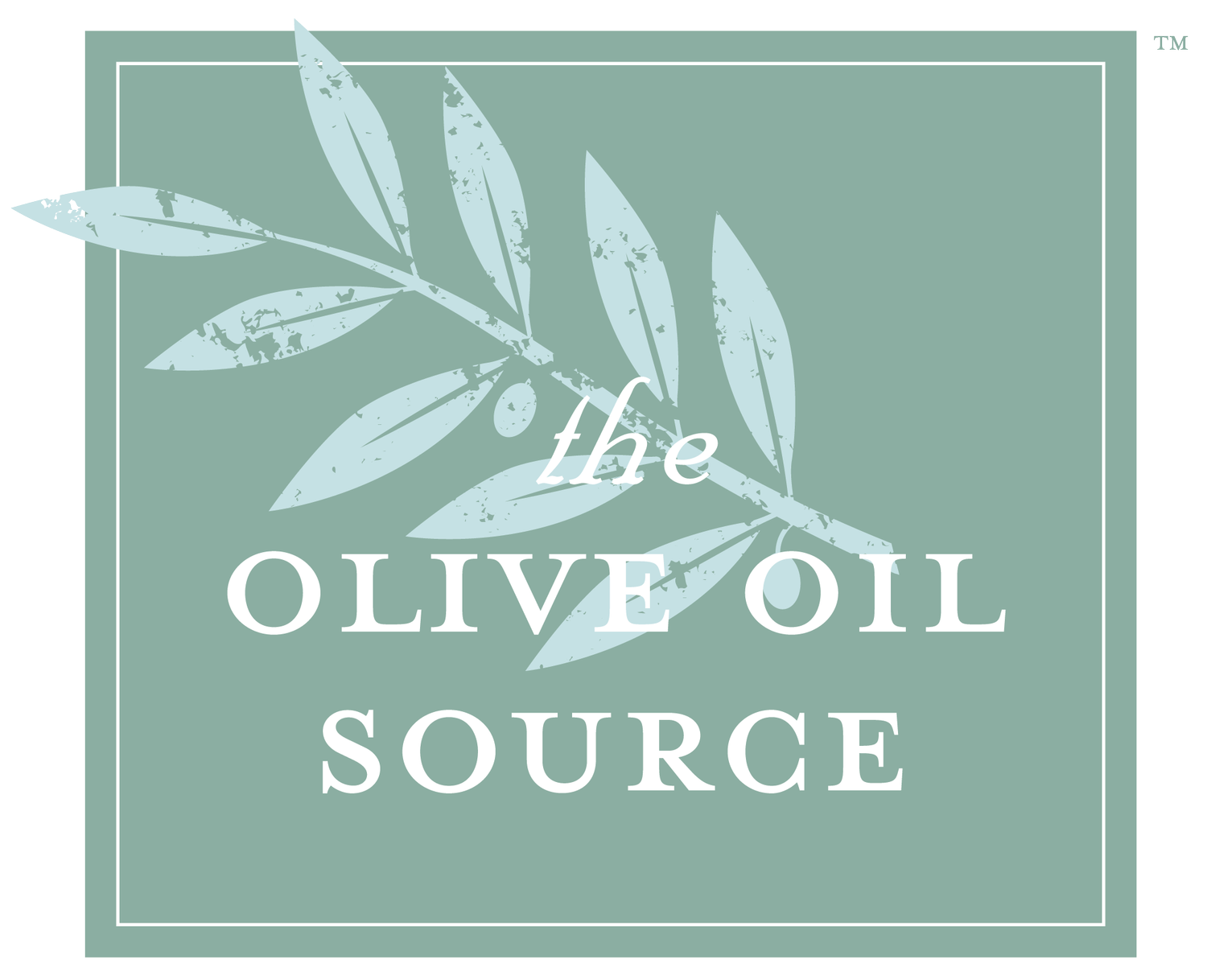
Arthritis and Olive Oil
The autoimmune disease rheumatoid arthritis affects more than 2 million people in the U.S. alone and is 2-3 times more common in women than men. To alleviate the pain and swelling from the inflammation of joints associated with arthritis, most people reach for over-the-counter non-steroidal anti-inflammatory drugs (NSAID) medications like ibuprofen, aspirin, or naproxen. Recent research, though, is demonstrating that the anti-inflammatory effects of olive oil can act much like a daily dose of ibuprofen to reduce and lessen the severity of arthritis. It points to olive oil as a natural solution to the problem. After a brief summary, we include a couple of research findings for your interest.
The medical community has long known that dietary fat intake is associated with degenerative diseases such as asthma and arthritis, but much depends on the type of fat consumed. A Mediterranean diet, including healthy amounts of olive oil and fats rich in omegas 3 & 6, appears to be beneficial. The typical American diet of animal fats, hydrogenated fats and vegetable oils like corn oil, often contributes to health problems.
It is the mono-unsaturated healthy fats found in olive oil that are used by the body to produce substances that are relatively anti-inflammatory. By reducing inflammation, these fats may be able to prevent or reduce the severity of diseases like arthritis and asthma because un-inflamed cell membranes are more fluid and better able to move healthy nutrients into the cells and move waste products out.
Recently a substance in olive oil named oleocanthal was identified and isolated as one of the compounds responsible for the anti-inflammatory benefits of olive oil. According to Dr. S. Gunasakaran, MBBS, MD, of the Arthritis Foundation, oleocanthal is a natural organic compound isolated from extra virgin olive oil. Oleocanthal is a tyrosol ester and its chemical structure is related to oleuropein, which is also found in olive oil. Recent studies have shown that oleocanthal not only possesses anti-inflammatory properties but additional antioxidant properties as well. Oleocanthal from extra virgin olive oil appears to be a promising new compound in the future management of arthritis.
COULD OLIVE OIL BECOME THE NEW ANTI-INFLAMMATORY STANDARD?
Someday soon, your doctor may recommend you prevent aches and pains, and reduce your risk of cancer, by using extra-virgin olive oil with your meals throughout the day, suggests a study led by Pennsylvania biologist Dr. Gary Beauchamp and published in Nature. While tasting extra-virgin olive oils in Sicily, Gary Beauchamp, PhD, director of the Monell Chemical Senses Center in Philadelphia, noticed a ticklish, peppery sensation in the back of his throat. It was nearly identical to the “sting” he had felt when swallowing a liquid form of non-steroidal anti-inflammatory drugs, during previous sensory studies. Beauchamp detected a connection between olive oil and inflammation.
Beauchamp and his team analyzed freshly pressed extra-virgin olive oil and discovered a compound that suppresses the prostaglandin system, as do non-steroidal anti-inflammatory agents. Although its chemical structure is quite different from the anti-inflammatory compounds in non-steroidal drugs, olive oil's anti-inflammatory component, which Beauchamp named "oleocanthal," has a similar effect. A 50g dose (about 4 tablespoons) of extra-virgin olive oil supplies enough oleocanthal to produce an effect equivalent to that of about 10% of the ibuprofen dose recommended for adult pain relief. While this amount won't cure a headache (and most people would not have room in their diet for the calories and fat contained in 4 tablespoons of olive oil), daily consumption of olive oil may prevent inflammation and confer some of the benefits of long-term ibuprofen and similar drugs use, without the increased risk of intestinal bleeding and kidney damage that long-term use of non-steroidal drugs carries.
Scientists believe this finding is significant because inflammation plays a key role in a variety of chronic diseases. "Some of the health-related effects of the Mediterranean diet may be due to the activity of oleocanthal from premium olive oils," said Beauchamp. Dr Paul Breslin, who directed the research with Beauchamp, added: "The Mediterranean diet, of which olive oil is a central component, has long been associated with numerous health benefits, including decreased risk of stroke, heart disease, breast cancer, lung cancer, and some dementias. Now that we know of oleocanthal's anti-inflammatory properties, it seems plausible that oleocanthal plays a causal role in the health benefits associated with diets where olive oil is the principal source of fat."
Although oleocanthal should be present in any extra-virgin olive oil, concentrations will vary depending upon a range of factors, including the variety of olive and the age of the olives at pressing. The best way to check your olive oil for oleocanthal content? "Sip the oil neat and see how strongly it stings the back of the throat," recommends Breslin. "The greater the sting, the greater the oleocanthal content."
FATTY ACIDS BENEFITS: HOW OMEGA-3s REDUCE INFLAMMATION
Understanding how your body benefits from omega-3 fatty acids is an important part of understanding why you should include them in your diet. Researchers have long known omega-3 fatty acids help reduce inflammation. But, until recently, no one really knew what made omega-3s so beneficial.
A study at Brigham and Women’s Hospital in Boston revealed that omega-3s actually convert into compounds that are 10,000 times more potent than the original fatty acids themselves. So what does this mean to us? The new compounds include resolvins, which help bring the inflammatory response to an end, says the study’s lead researcher, Charles Serhan, PhD, director, Center for Experimental Therapeutics and Reperfusion Injury at Harvard Medical School, Boston.
In a healthy immune system, the normal inflammatory process repairs damage and protects the body from infections. But in arthritis and inflammatory diseases, an overactive immune response leads to tissue degradation. Serhan’s research showed that the same pathway that signals the start of inflammation also includes an off switch. Omega-3s convert into these more powerful compounds, putting the brakes on this active process and causing it to screech to a halt, says Serhan.
What is not yet known is how much omega-3s are needed to optimize the body’s conversion from omega-3s into resolvins, says Serhan. Both Serhan and the American Dietetic Association, however, recommend food over supplements to reap omega-3 benefits. All olive oils contain both omega-3 acids. Different varieties and growing conditions may produce different ratios of the omega acids. The method of processing does not; so pure, virgin and extra virgin made from the same olives would have the same omega acids.
SOURCES
The full text of this article was published in Nature International Weekly Journal of Science, September 2005.
The content of this web site is not intended to offer personal medical advice. You should seek the advice of your physician or other qualified health provider with any questions you may have regarding a medical condition. Never disregard professional medical advice or delay in seeking it because of something you have read on this web site.
